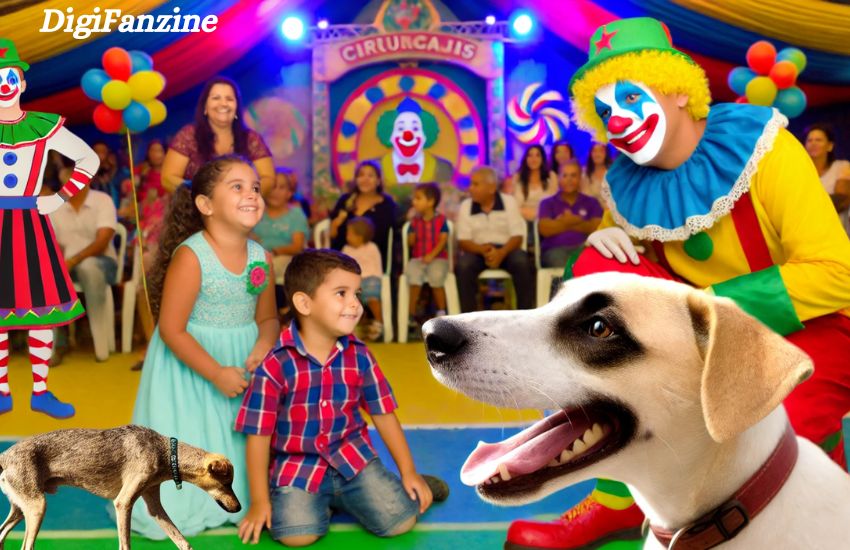Introduction
“Firuñais” or “Firulais” is a name that resonates deeply in Latin American culture, particularly in Mexico. It is often used to refer to stray or unnamed dogs, carrying with it a blend of folklore, linguistic transformation, and cultural significance. This article delves into the origins, meanings, and cultural impact of the term “Firuñais,” uncovering the rich tapestry of stories that have made this name an endearing part of everyday life.
The Anglicism Origin: From “Free of Lice” to “Firuñais”
One of the most accepted theories regarding the origin of “Firuñais” traces its roots to an English phrase. In the mid-20th century, U.S. authorities would often inspect pets accompanying Mexican workers crossing the border, ensuring they were “free of lice.” Due to language barriers and the natural phonetic evolution that occurs in such scenarios, “free of lice” gradually transformed into “Fri yu lais” and eventually “Firuñais.” This adaptation is a prime example of how language evolves and how cross-cultural interactions can shape linguistic expressions.
The Tragic Clown: Payaso Firulais
Another poignant story links the name “Firuñais” to a Mexican clown. In this version, a young man from Jalisco, pressured to abandon his passion for bullfighting by his parents, became a clown after their deaths. He adopted a stray dog and named it Firulais. The dog’s death left a deep impact on him, leading him to name all stray dogs he encountered “Firulais.” This tale adds a layer of cultural and emotional depth to the name, highlighting themes of loss, adaptation, and enduring affection for canine companions.
Cultural Spread and Popularity
The term “Firuñais” quickly gained popularity, spreading from local use in Jalisco to nationwide recognition in Mexico and beyond. It became a common way to refer to any dog whose name was unknown, reflecting the deep bond between humans and dogs. The term’s spread was further aided by its appearance in media, including TV shows and cartoons, cementing its place in Latin American popular culture. This widespread use underscores the universal appeal of dogs and their role as beloved companions.
Linguistic Evolution: Spanglish Influence
The evolution of “Firuñais” also illustrates the broader phenomenon of Spanglish, where English phrases are adapted into Spanish. Just as “check” became “checar” and “mute” became “mutear,” “free of lice” became “Firuñais.” This linguistic blending reflects the dynamic nature of language in border regions and immigrant communities, where new expressions emerge from the interaction of different languages and cultures. “Firuñais” stands as a testament to the creativity and adaptability of language.
Symbol of Affection and Companionship
Regardless of its origin, “Firuñais” has come to symbolize affection and companionship. It is used endearingly to refer to dogs, emphasizing that a dog’s value is not determined by its breed or background. This inclusive use of the term highlights the universal nature of the human-dog bond, where dogs are cherished for their loyalty and companionship. The term’s popularity underscores the idea that every dog, regardless of its origins, deserves love and care.
Modern Usage and Cultural Impact
Today, “Firuñais” continues to be widely used across Latin America. It appears in various contexts, from casual conversations to popular media, reflecting its deep integration into the cultural fabric. The term’s enduring popularity speaks to the ongoing relevance of the stories and values it represents. As a cultural artifact, “Firuñais” offers a window into the ways language, folklore, and societal values intersect to create expressions that resonate across generations.
The Universal Dog Name: A Shared Cultural Heritage
“Firuñais” is not just a name but a cultural marker that signifies the shared heritage and common experiences of people across Latin America. It highlights the universal affection people have for dogs, transcending borders and linguistic differences. This shared cultural heritage fosters a sense of community and understanding among people who use the term, creating a bond that goes beyond the individual stories and anecdotes associated with the name.
Embracing the Legacy of Firuñais
In embracing the legacy of “Firuñais,” we celebrate the resilience and adaptability of cultural expressions. The name stands as a symbol of how language evolves and how deeply ingrained cultural practices can influence everyday life. Whether through the tale of a tragic clown or the practical need to keep pets free of lice, “Firuñais” encapsulates the richness of Latin American culture and its ability to adapt and thrive in diverse contexts.
Conclusion
“Firuñais” is more than just a name; it is a symbol of cultural adaptation, linguistic creativity, and the enduring bond between humans and dogs. Whether traced back to the English phrase “free of lice” or the story of a tragic clown, the term carries a rich history that continues to touch hearts across Latin America. Its widespread use and endearing connotations make “Firuñais” a beloved part of the cultural landscape, embodying the universal affection for our canine companions.
